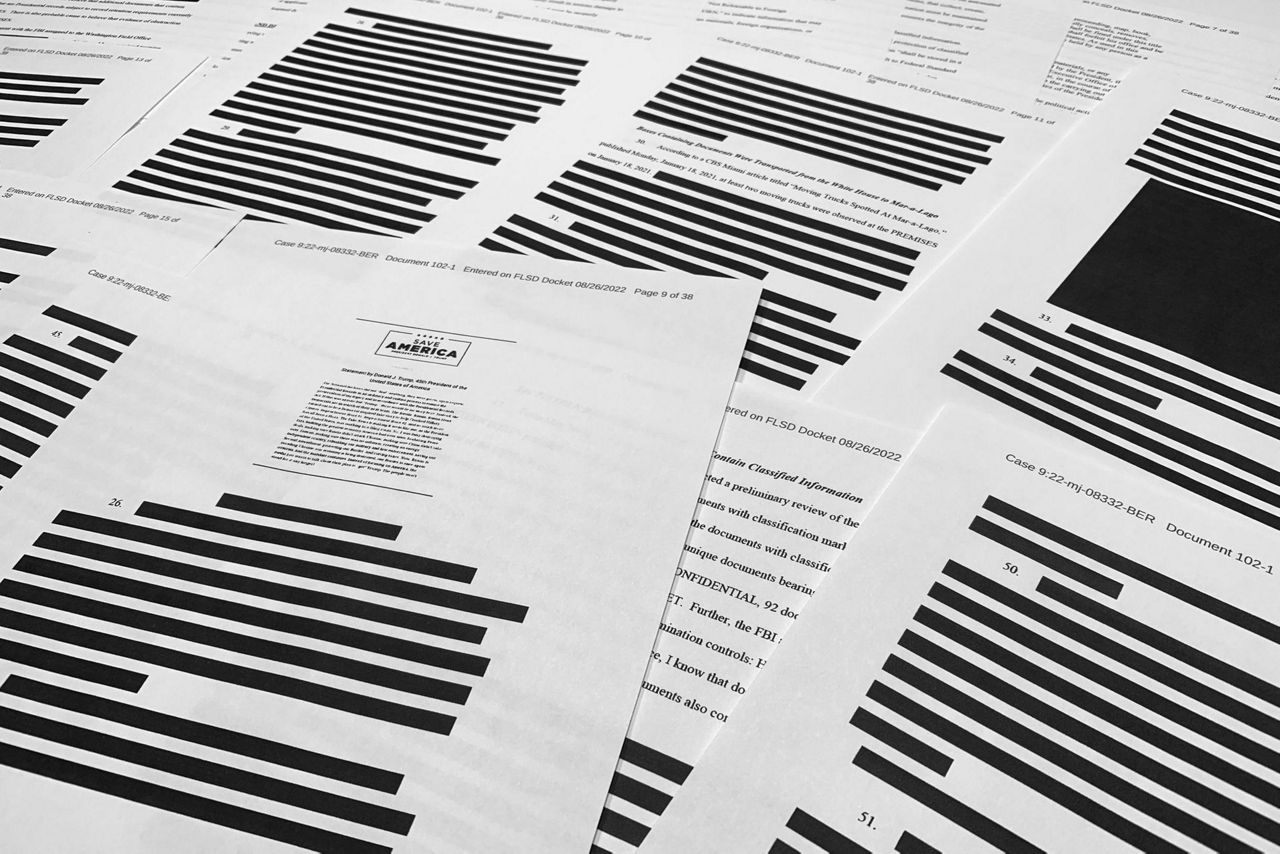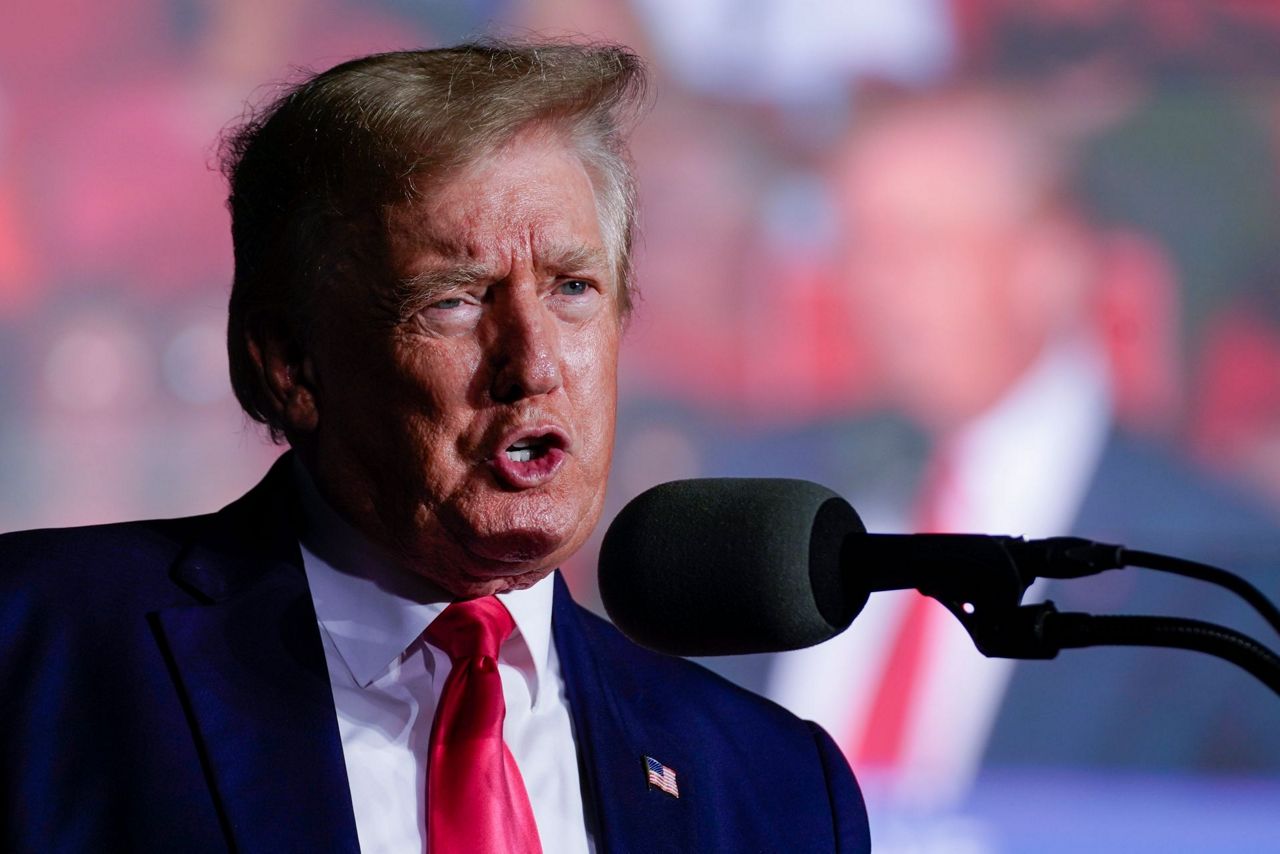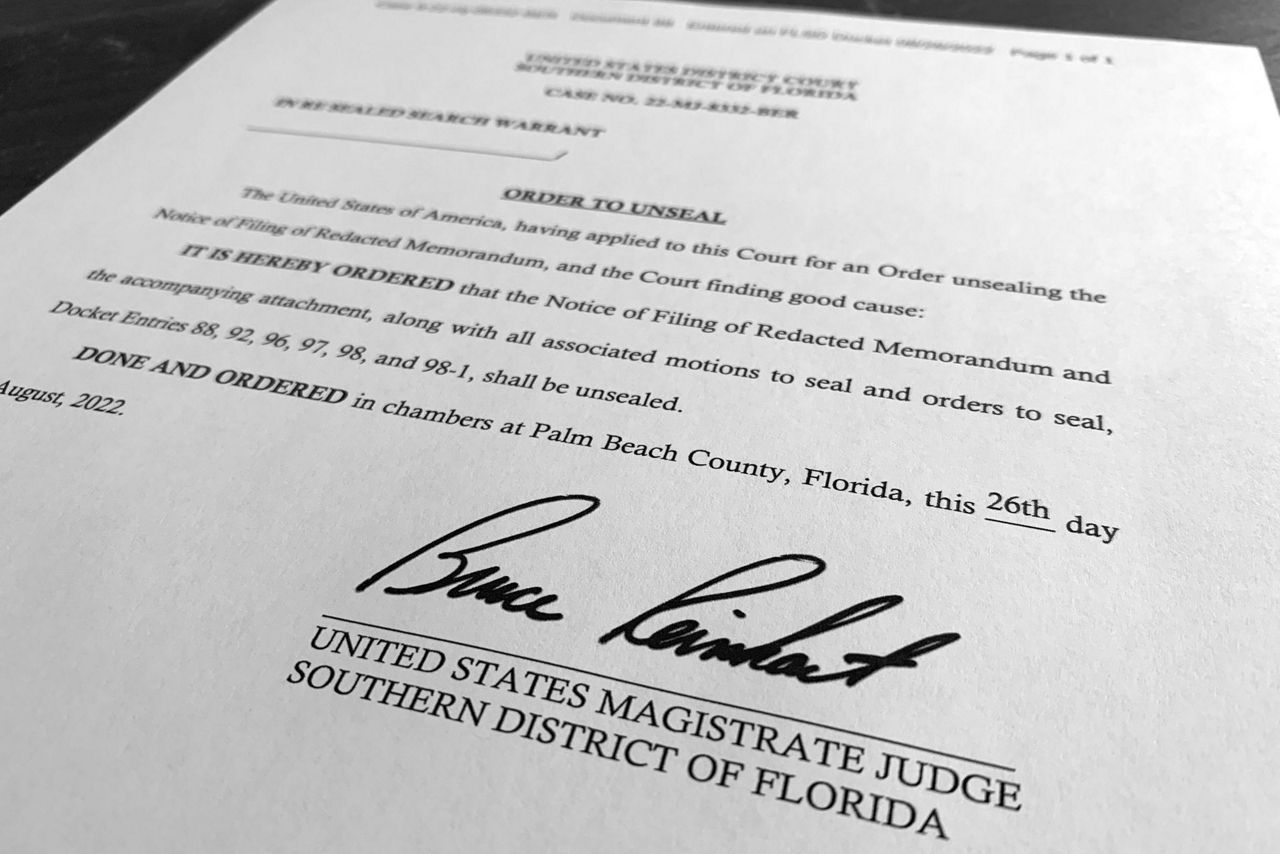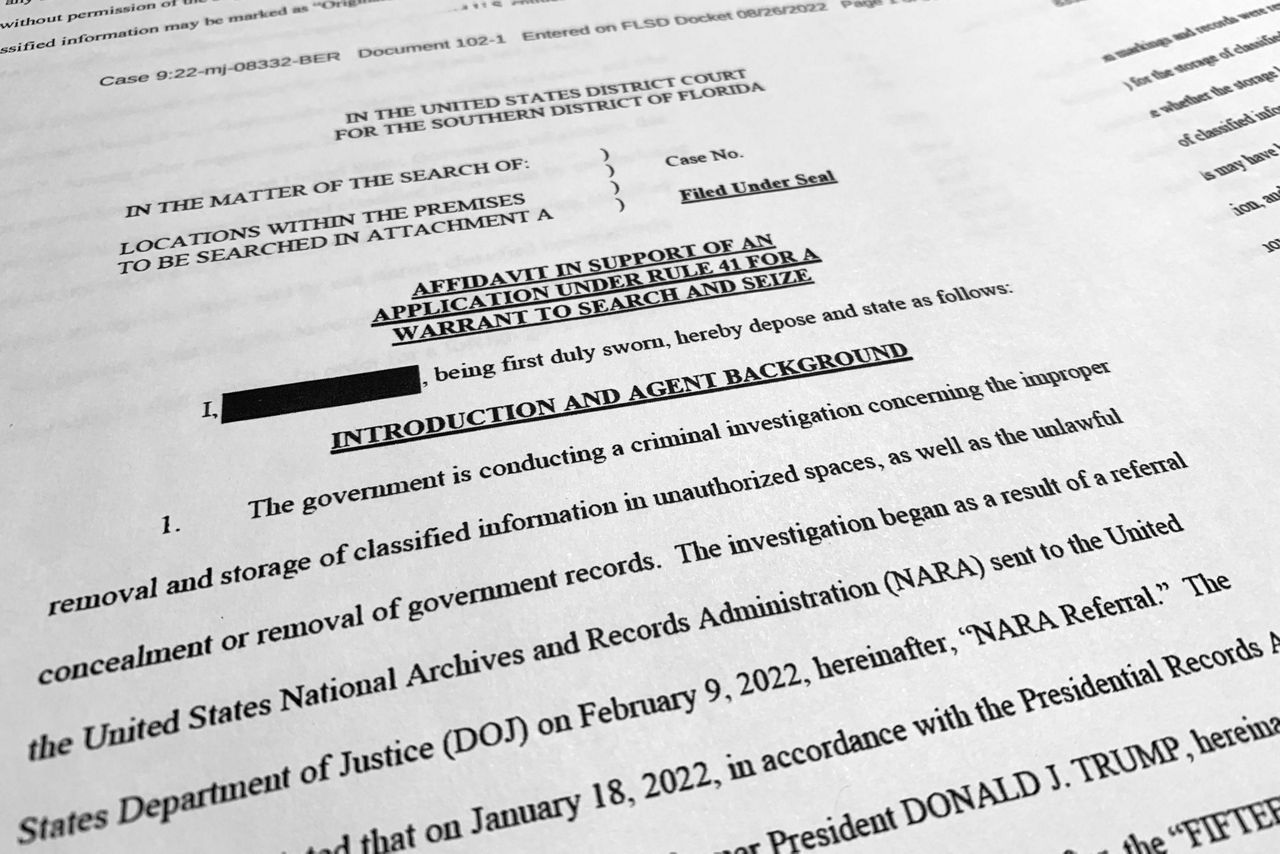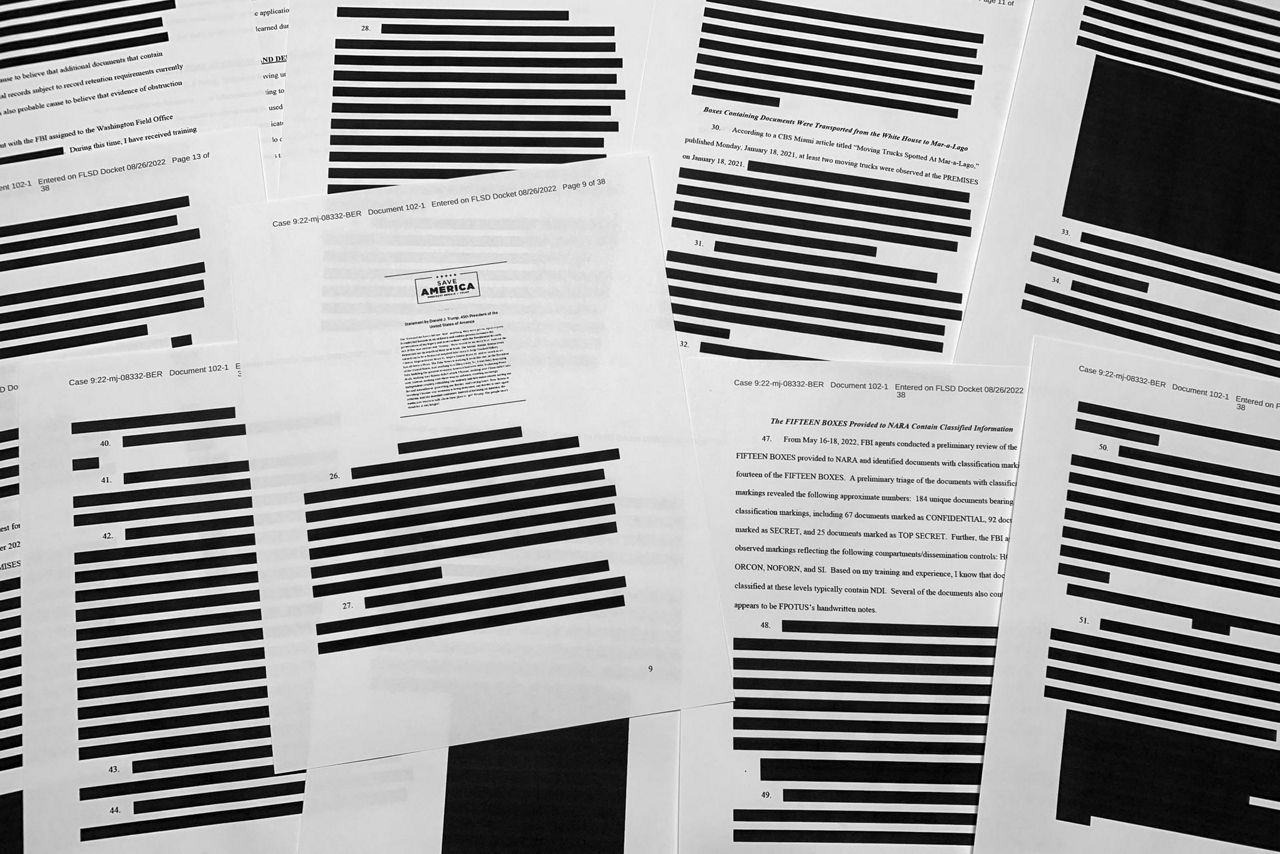WASHINGTON (AP) — Fourteen of the 15 boxes recovered from former President Donald Trump's Florida estate early this year contained documents with classification markings, including at the top secret level, according to an FBI affidavit released Friday explaining the justification for this month's search of the property.
The 32-page affidavit, even in its heavily redacted form, offers the most detailed description to date of the government records being stored at Trump's Mar-a-Lago property long after he left the White House and reveals the gravity of the government's concerns that the documents were there illegally.
“The government is conducting a criminal investigation concerning the improper removal and storage of classified information in unauthorized spaces, as well as the unlawful concealment or removal of government records,” an FBI agent wrote on the first page of the affidavit in seeking a judge's permission for a warrant to search the property.
The affidavit does not provide new details about the 11 sets of classified records recovered during the Aug. 8 search at Mar-a-Lago but instead concerns a separate batch of 15 boxes that the National Archives and Records Administration retrieved from the home in January.
In those boxes, according to the affidavit, officials located 184 documents bearing classification markings, including 25 documents marked as top secret. Agents who inspected the boxes found markings related to information provided by confidential human sources as well as information related to the Foreign Intelligence Surveillance Act.
Taken together, the affidavit reveals additional details about an ongoing criminal investigation that has brought fresh legal peril for Trump just as he lays the groundwork for another presidential run. It also shows in stark detail the volume of sensitive government documents that were stored at Mar-a-Lago instead of being turned over to the National Archives.
The FBI submitted the affidavit, or sworn statement, to a judge so it could obtain the warrant to search Trump's property. Affidavits typically contain vital information about an investigation, with agents spelling out the justification for why they want to search a particular property and why they believe they’re likely to find evidence of a potential crime there.
In a separate document unsealed Friday, Justice Department officials explained that it was necessary to redact some information to “protect the safety and privacy of a significant number of civilian witnesses, in addition to law enforcement personnel, as well as to protect the integrity of the ongoing investigation.”
Affidavits routinely remain sealed during pending investigations, making the decision by Magistrate Judge Bruce Reinhart to reveal portions of it all the more striking.
In an acknowledgment of the extraordinary public interest in the investigation, Reinhart on Thursday ordered the department by Friday to make public a redacted version of the affidavit. The directive came hours after federal law enforcement officials submitted under seal the portions of the affidavit that they wanted to keep secret as their investigation moves forward.
Documents previously made public show the FBI retrieved from the property 11 sets of classified documents, including information marked at the top secret level. They also show that federal agents are investigating potential violations of three federal laws, including one that governs gathering, transmitting or losing defense information under the Espionage Act. The other statutes address the concealment, mutilation or removal of records and the destruction, alteration or falsification of records in federal investigations.
It's possible that the affidavit, particularly in its unredacted form, could shed light on key unanswered questions, including why sensitive presidential documents — classified documents, among them — were transported to Mar-a-Lago after Trump left the White House and why Trump and his representatives did not supply the entire tranche of material to the National Archives and Records Administration despite repeated entreaties.
It could also offer additional details on the back-and-forth between Trump and the FBI, including a subpoena for documents that was issued last spring, as well as a June visit by FBI and Justice Department officials to assess how the materials were being stored.
The Justice Department had earlier contested arguments by media organizations to make the affidavit public, saying any disclosure could contain private information about witnesses and about investigative tactics. But Reinhart, acknowledging the extraordinary public interest in the investigation, said last week that he was disinclined to keep the entire document sealed and told federal officials to submit to him in private the redactions it wanted to make.
In his order Thursday, Reinhart said the department had made compelling arguments to leave sealed broad swaths of the document that, if disclosed, would reveal grand jury information; the identities of witnesses and “uncharged parties"; and details about the investigation's “strategy, direction, scope, sources and methods.”
But he also said he was satisfied “that the Government has met its burden of showing that its proposed redactions are narrowly tailored to serve the Government’s legitimate interest in the integrity of the ongoing investigation and are the least onerous alternative to sealing the entire Affidavit.”
____
Follow Eric Tucker on Twitter at http://www.twitter.com/etuckerAP
___
Find more on Donald Trump-related investigations: https://apnews.com/hub/donald-trump
Copyright 2022 The Associated Press. All rights reserved. This material may not be published, broadcast, rewritten or redistributed without permission.



